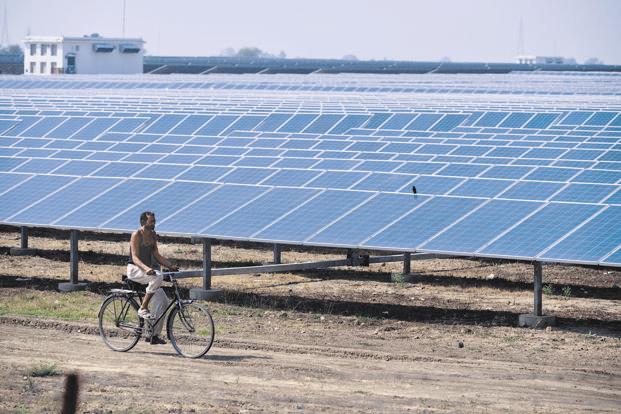ImpactAlpha, June 17 – India’s aggressive shift to solar energy has attracted yet another private-equity player: The Rise Fund has taken a $70 million stake in Hyderabad rooftop-commercial solar developer, Fourth Partner Energy.
India’s is several years ahead of schedule to hit its official renewable energy target of 175 gigawatts of installed capacity by 2022. Government officials now talk unofficially about reaching 225 gigawatts by that date, according to Reuters. A few years ago, official forecasts called for only 22 gigawatts of solar by 2022.
Forecasts of new capacity to be added this year range from six gigawatts to 11 gigawatts, compared to 9.3 gigawatts last year, as a result of trade disputes, tariffs and project delays. (The U.S. is expected to add about 10 gigawatts of solar capacity this year.)
Rooftop solar projects for industrial, commercial and government customers, as well as residential, are forecast to account for 40 gigawatts by 2022. Fourth Partner Energy has its own 2022 target of one gigawatt of distributed solar capacity. The company says it has so far completed more than 1,500 projects across 22 Indian states, totaling about 50 megawatts of generating capacity.
Growth-equity and strategic investors have been angling for position in the Indian market. Royal Dutch Shell, the giant oil company, was in discussions to acquire a majority stake in Fourth Partner Energy in February, according to reports in the Indian press.
Instead, The Rise Fund, managed by TPG Growth, will try to help Fourth Partner, and India, blow through best-case scenarios and expand to South East Asia, the Middle East and Africa. “India is demonstrating to the world the positive commercial and environmental impact of distributed solar solutions,” Fourth Partners’ Vivek Subramanian said in a statement.
The $2 billion Rise Fund, which includes a who’s who of billionaires and institutional investors, calculates an “impact multiple of money” for each investment, according to CEO Bill McGlashan. Fourth Partner Energy claims its platform “has the potential” to avert more than 16 million metric tons of carbon from the atmosphere, as well as reduce water-use and emissions from diesel generators. “The more solar systems they deploy, the more they save their customers money and the greater the positive environmental impact,” said The Rise Fund’s Rick Needham.
>>MORE: “Q&A with Bill McGlashan: The Rise Fund’s ‘impact multiple of money’”
The deal reflects accelerating dealmaking in the Indian solar sector. Japan’s SoftBank Group Corp is aiming to invest between $60 billion and $100 billion in solar-power generation in India, the broadcaster NHK reported last week. In April, the $93 billion SoftBank Vision Fund partnered with a Chinese company, GCL System Integration Technology in a $930 million project developing four-gigawatts of solar generating capacity in India.
In January, the Canada Pension Plan Investment Board paid $144 million for the Asian Development Bank’s 6.3% share in ReNew Power Ventures. In February, U.K.-based SunSource Energy attracted an undisclosed equity investment from the Neev Fund, a joint venture of the State Bank of India and the U.K.’s DFID, for solar projects in Uttar Pradesh, Rajasthan and other India states.
Bangalore-based Orb Energy raised $15 million of equity and debt from development finance institutions including Netherlands Development Finance Co. and the U.S. Overseas Private Investment Corp. U.K.-based Lightsource and Australian bank Macquarie, are also breaking ground on solar developments in India.











